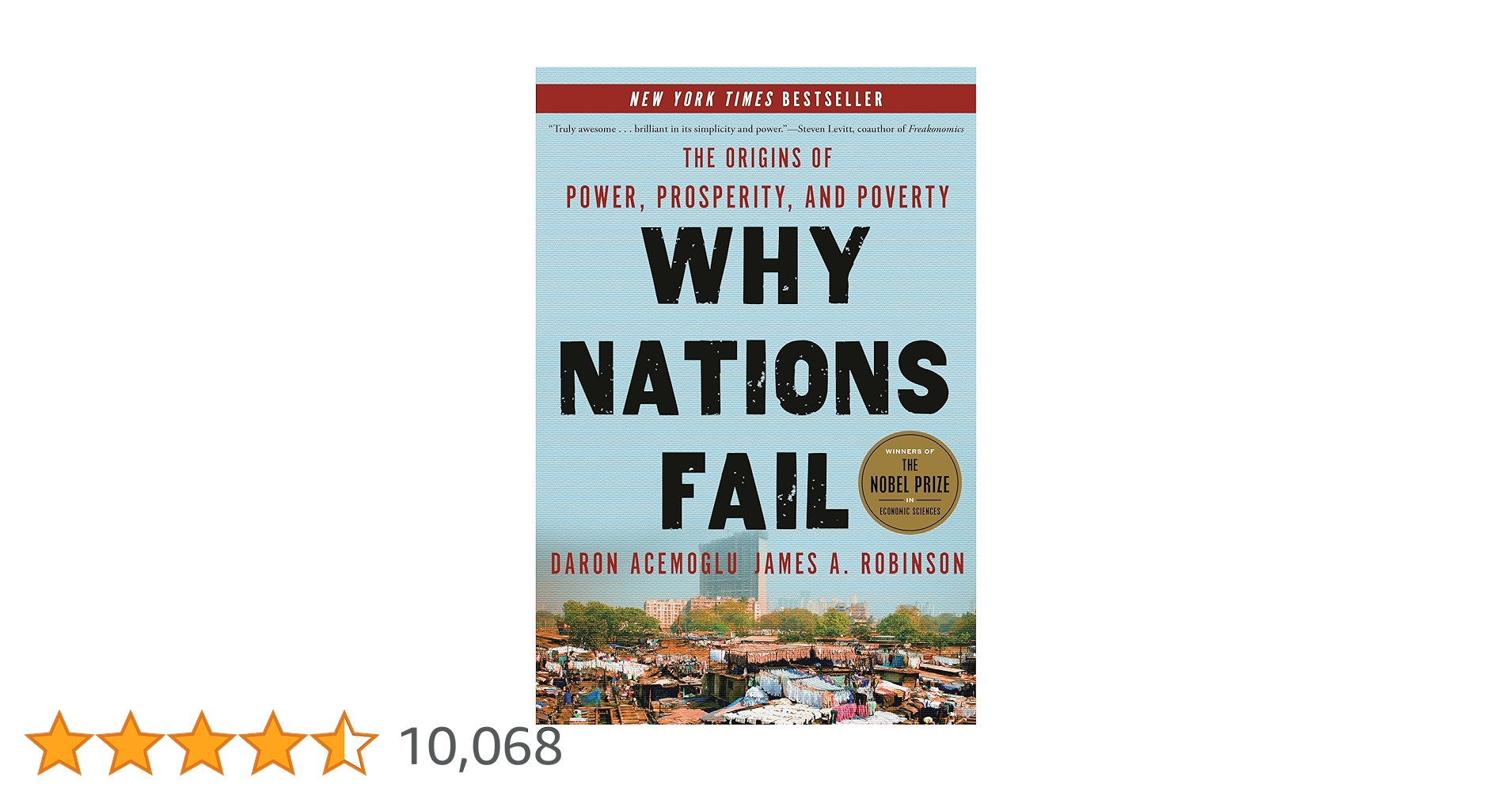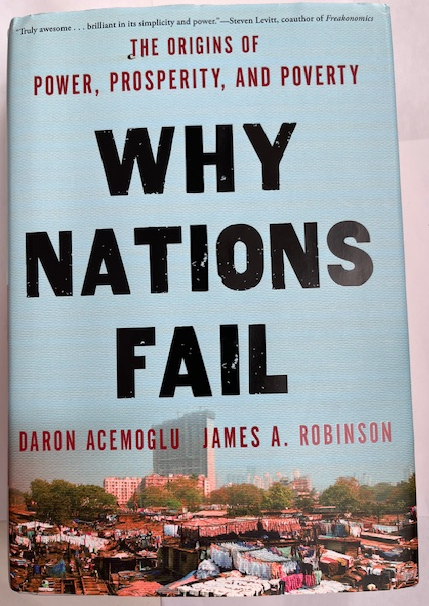読書中の洋書 Why Nations Fail(邦題:国家はなぜ衰退するのか)の書評記事を数回に分けて書いています。

11回目となる今回は最終回。
第14章(Breaking The Mold)と第15章(Understanding Prosperity and Poverty)を扱います。
15章は本書の要約ともいえる内容で、「略奪的な仕組み」(Extractive Institution)は一時的には繁栄をもたらすものの長期的には持続しないこと、Inclusive Institutionが長期的な繁栄をもたらすことが再度強調されます。
しかし、本書の著者は、Inclusive Institutionへ繋がる道筋を、政策担当者が一義的に設定することはできないと考えます。なぜなら、国家の仕組みは、経路依存性(path-dependenth)や重大局面(critical junctures)に左右されるからです。
しかし、本書の豊富な事例を通じて、我々は国家の衰退と繁栄の要因を洞察することが可能となります。
【English】
Acemoglu and Robinson present a compelling argument that institutions—rather than geography, culture, or ignorance—are the key determinants of a nation’s success or failure.
Chapter 15 serves as a culmination of their thesis, providing a broader synthesis of their institutional theory and addressing counterarguments to their model.
The authors emphasize that prosperity is not a matter of luck or natural endowments but rather the result of inclusive institutions that foster innovation, investment, and economic growth. They contrast this with extractive institutions, which concentrate power and wealth among elites, stifling broad-based development.
The authors use a wide range of historical examples, from the divergence between North and South Korea to the colonial legacies in Latin America and Africa, to illustrate how different institutional frameworks shape economic outcomes. They argue that even resource-rich countries can fall into poverty traps if their institutions fail to distribute wealth and power equitably.
Moreover, the chapter challenges the notion that foreign aid necessarily leads to a nation’s prosperity. The authors caution against top-down solutions imposed by international organizations or policymakers who ignore institutional realities. Instead, they advocate for organic, internally driven reforms that empower broader segments of society. This perspective aligns with their broader argument that sustainable development requires political and economic inclusivity.
The book challenges conventional wisdom and offers a compelling framework for understanding economic disparity. For readers interested in economic history, political economy, or development studies, the book provides invaluable insights into why some nations thrive while others stagnate.



コメント